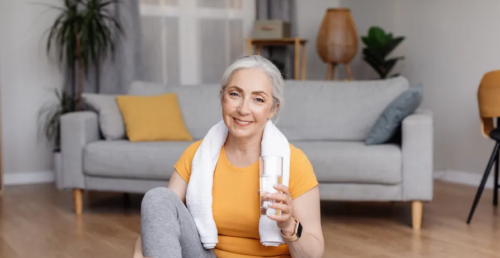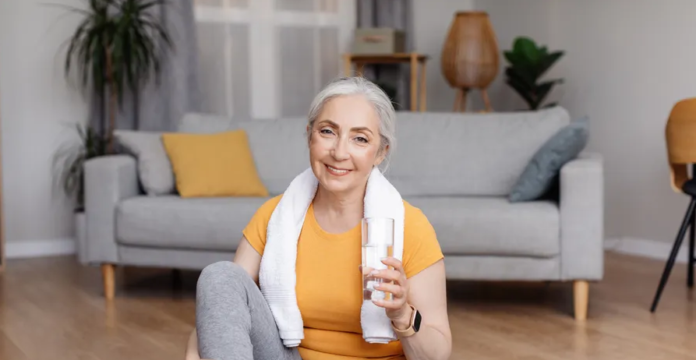It’s really important to stay active no matter how old you are, but it becomes even more crucial as we get older. Luckily, you can find helpful exercise tips for seniors by searching online.
Doing exercise when you’re older is not just about keeping your body healthy. It’s important to stay independent, improve your mind, and improve your overall life. And remember, this journey to being more active is something you keep doing over time.
Benefits of Exercise for Seniors
Doing regular exercise as a senior has lots of good effects. It helps with weight control, lowers the chance of getting sick for a long time, strengthens the heart, and strengthens bones and muscles, so there’s less chance of falling or getting hurt.
Also, being active is good for the mind. It makes mental health better, helps with feeling sad, and makes thinking better. It’s not just about living longer but making the time you have more enjoyable.

Getting Started Safely: Talking to Your Healthcare Providers
Before you begin a new exercise routine, it’s crucial for older adults to talk to their healthcare providers. This helps make sure the exercise plan is safe and fits with individual health conditions and limits. Regular check-ups also help see how well things are going and make any needed changes to the exercise routine.
Low-Impact Exercises: A Safe Starting Point
Easy exercises are great for seniors because they’re gentle on the joints and lower the chance of getting hurt. Things like walking, swimming, and cycling are good for the heart without putting too much stress on the body. Yoga and tai chi are also helpful—they involve both physical movement and relaxing the mind, plus they improve balance.
Building Strength: Important for Keeping Muscles and Bones Healthy
Getting strong is really important for seniors because it helps keep muscles and bones healthy. You don’t need heavy weights for this—using stretchy bands or doing exercises with your own body weight, like squats and lifting your arms, works well. It’s important to do strength training with guidance to make sure you’re doing it right and avoid getting hurt.
Good balance and flexibility help stop falls.
It’s important for seniors to avoid falls, and one way is by getting better balance and flexibility. Doing things like lifting your legs, stretching, and doing balance exercises, such as standing on one leg or doing tai chi, can really help. If you do these exercises regularly, it can make falling less likely.
Cardiovascular Exercises: Keeping the Heart Healthy
Doing exercises that get your heart pumping and help your lungs stay healthy is good for you. Things like walking fast, dancing, or easy aerobics can make your heart beat faster and improve your lung function. Health experts suggest that seniors try to do at least 150 minutes of these kinds of exercises each week.
Group Exercises: Social Interaction and Motivation
Joining exercise classes or clubs with others is good for your mental health. It’s fun and helps keep you motivated. Lots of community centers and gyms have classes just for seniors, like water aerobics, chair yoga, or dance classes.
Paying Attention to Your Body: Knowing Your Boundaries
Seniors need to pay attention to their bodies and know their limits. If an exercise hurts or feels uncomfortable, stop doing it right away. Taking breaks is important, and don’t push yourself too hard. It’s crucial to recognize and respect what your body is telling you to keep a healthy exercise routine.
Adapting Exercises to Individual Needs
Each older person has special health needs and abilities. It’s important to change exercises to fit these individual requirements.
For example, if someone has arthritis, they might prefer water aerobics, which is easier on the joints. But if someone has more stamina, they might like longer walks or bike rides. The important thing is to make activities personalized so they’re enjoyable and helpful without causing any pain or discomfort.
Incorporating Mind and Body Wellness
Seniors should also do things to keep their minds healthy. This can include activities like meditation, deep breathing exercises, and mindfulness every day. These practices make thinking clearer, help handle stress, and improve sleep.
Regular Check-ups and Tracking Progress
Regular doctor visits are important to see how exercise affects your health. These check-ups help adjust your exercise plan if there are any health changes.
Keeping an eye on your progress, whether it’s getting fitter, feeling better, or moving more, can also be really encouraging.


